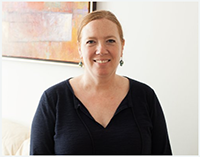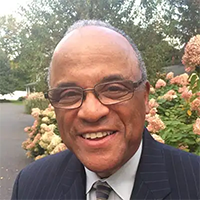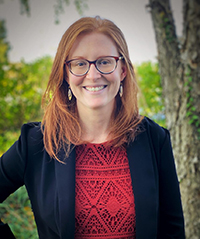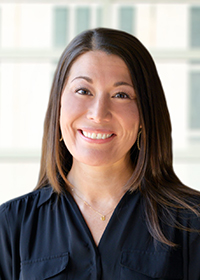Laura Reagan, LCSW-C

“We all have regrets about decisions we make that didn’t go according to plan,” says Laura Reagan. “Mistakes are how we learn.” Knowing that each decision is a learning opportunity might not stop you from ruminating about your regrets.
Reagan, LCSW-C, and an NASW member, is an integrative trauma therapist in private practice outside of Baltimore. She has found that stubborn, persistent regret is typically tied to feelings of shame and self-blame. It also “seems to be more common to ruminate about regrets for people whose parents were critical and controlling,” she says in a story posted at PsychCentral.
Ruminating about our regrets is how we distract ourselves from the pain reflected in the behavior, the article says. Reagan offers exercises for addressing regret, including writing down why you made the decision you made at that time. Then, try to empathize with yourself about the decision.
Rev. Frederick Streets

HIV/AIDS is not considered the crisis it was some decades ago, says the Rev. Frederick Streets, NASW member and former chaplain of Yale University, and senior pastor of Dixwell United Church of Christ in New Haven, Conn.
However, Streets, a clinical social worker, says data from the Centers for Disease Control and Prevention and the Connecticut Department of Public Health show that among new HIV diagnoses in 2019 in the U.S., 42 percent were Black people.
In Connecticut, the rate of new HIV diagnoses among Black men was 10 times higher than in white men and 54 percent of new HIV diagnoses in women occurred in Black women, Streets says in an opinion piece published in the Shelton Herald.
“People affected by HIV/AIDS include people of faith,” he says. “They hunger for faith communities who can offer them informed and compassionate care, acceptance and not judgment on their journey of reimaging how God continues to love them.”
Chelsea Haverly, LCSW

A growing number of people who have experienced trauma are finding that pumping iron not only benefits them physically, but also psychologically, says a recent New York Times article.
The story quotes NASW member Chelsea Haverly, LCSW. She is founder of Hope Ignited, a Maryland-based organization dedicated to educating organizations and clinicians about trauma.
Haverly and Emily Young, also an LCSW, and certified personal trainer, created a trauma-informed weightlifting certification program for trainers, to bring its mental health benefits to more clients, the story explains.
With lifting, Haverly says, “it’s not just, ‘I can do hard things.’ It’s ‘my body can do hard things.’ It’s ‘I have not felt strong, and now I feel like a beast.’”
Teri Schroeder, LCSW

While relationships can differ, only you and your partner can decide boundaries around sharing devices or information, says a story at Insider.com.
A partner who accesses your communications and activities without your consent is violating your trust and right to privacy, it says in a story about nine signs to look out for in domestic abuse. Snooping on your devices is one of the signs where you may feel unsafe communicating with loved ones or develop anxiety about how messages from your friends or family will be interpreted, says NASW member Teri Schroeder, LCSW, and co-founder of Just Mind Counseling in Austin, Texas.
Schroeder is also a board member at the Institute on Violence, Abuse, and Trauma, and an EMDR (Eye Movement Desensitization and Reprocessing) consultant. One of the subtlest and most damaging forms of domestic abuse is a pattern of invalidation, Schroeder adds in the article.